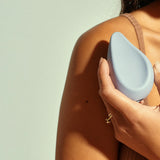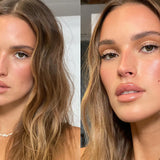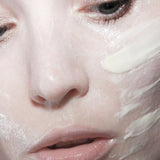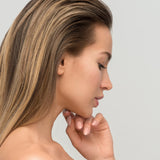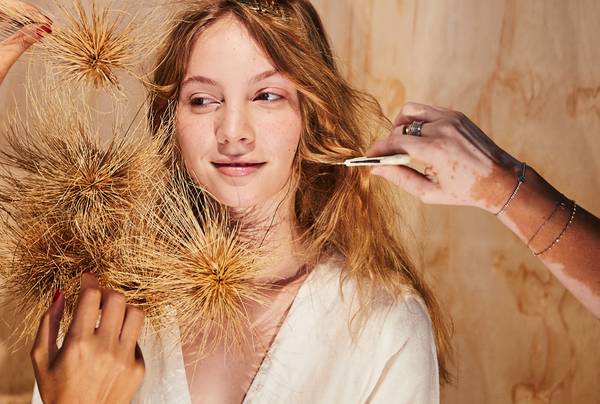Isabella Schimid is a leading Australian makeup artist who has a talent for bringing out the natural beauty in her clients. We are big fans of how she doesn’t hide her models’ complexions under thick layers of makeup, but rather lets their real skin shine through. Isabella is also an advocate for normalising vitiligo, after getting it later in life and experiencing first hand how misunderstood the skin condition is.
In celebration of International Women’s Day 2022 and the theme of diversity and inclusivity, we spoke to Isabella about what beauty means to her and asked her to share her top advice for others who also have vitiligo.
What does beauty mean to you?
“Beauty, to me means keeping it real and natural and working with your own features. Through my work, I try to educate and inspire women to adopt this as their ethos.”
What beauty products make you feel empowered?
“My facial tools, serums, and acids such as glycolic and lactic.”
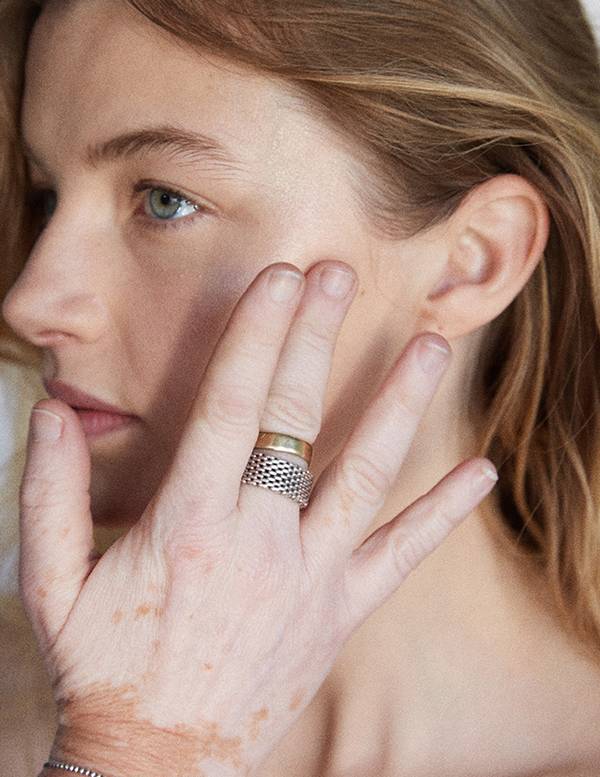
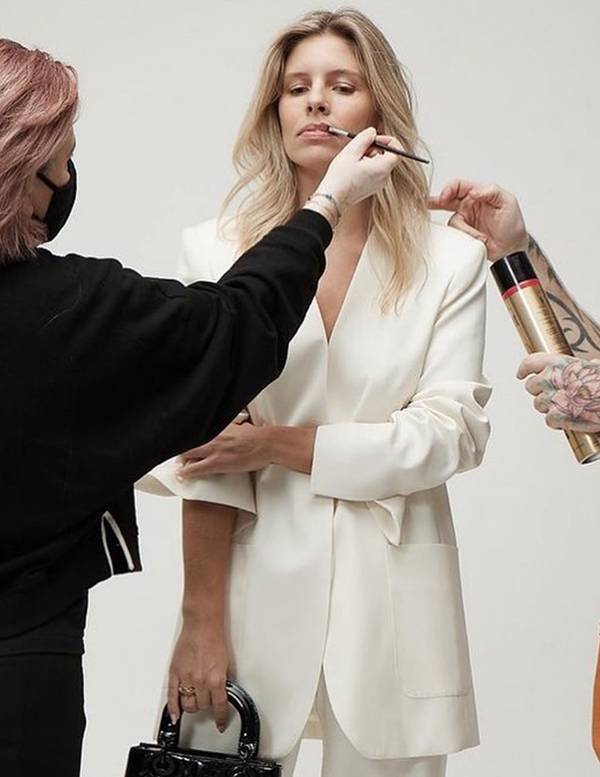
How do you think the beauty industry can improve when it comes to diversity and inclusivity?
“I think the industry can be more inclusive by not having a tokenistic approach - making the true change rather than just talking about it. Giving women like myself who have vitiligo and other skin issues opportunities to shine in their field.”
Vitiligo is a condition that causes skin to lose its pigment cells (melanocytes). This can result in discolored pale or white patches in different areas of the body. It affects 1 to 2 in every 100 people.
You are an advocate for raising awareness about vitiligo. What challenges have you faced as someone who has vitiligo?
“The most challenging thing about having vitiligo is trying to educate people on what it is and what you can do about it. Most people fear it because they don’t understand it! I did a how-to makeup video for a well-known Australian brand and after it was released I was shocked to see some of the comments on the page.
I used to only wear long sleeve shirts but on this one occasion I wore a short sleeve. In the comments, young ignorant girls were commenting saying ‘Oh look at her arms!! How ugly! She can’t even apply fake tan properly! How can she be a good makeup artist! It’s disgusting! It’s weird!’ It went on and on!!!! All these comments really upset me at the time. I tried to get the company to comment on my behalf about vitiligo but unfortunately they didn’t.
But that made me more determined to show it off even more. So now I try to make sure my arms and hands are in all my BTS shots. I am proud to talk about it and have it plastered everywhere.”
Tell us about your vitiligo journey and your top advice for others
“I got vitiligo in my 30s. At first I thought it was pigmentation after having a baby. Trying to find info on it was very hard. I was never a sun lover so I used to cover up all the time. I was worried about it more than how it looked because I didn’t understand it. It was hard to see my body change but the pattern has become very creative and beautiful! It’s amazing what the body does and how symmetrical it is on me. Not everyone gets it all over their body and even on both sides. I am lucky mine is. My advice is to embrace it and make it your own! If it does bother you, there are some good makeup concealers that work well covering it.”
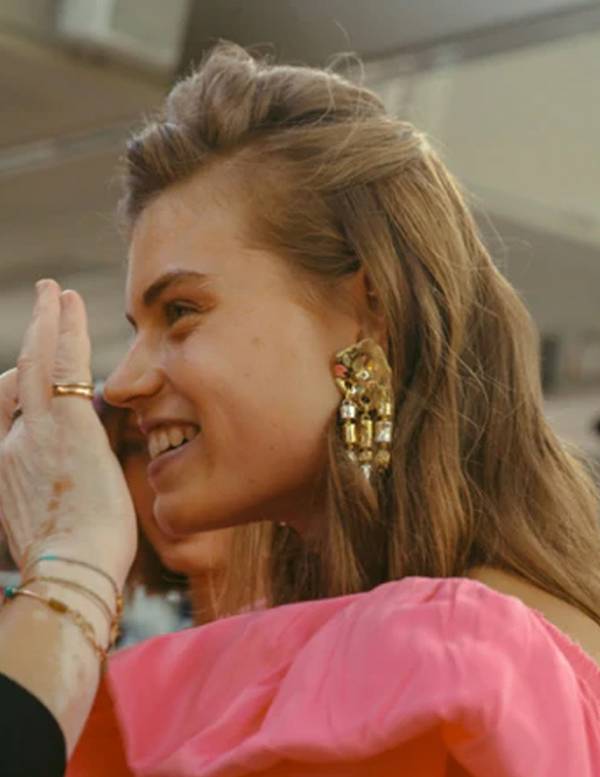
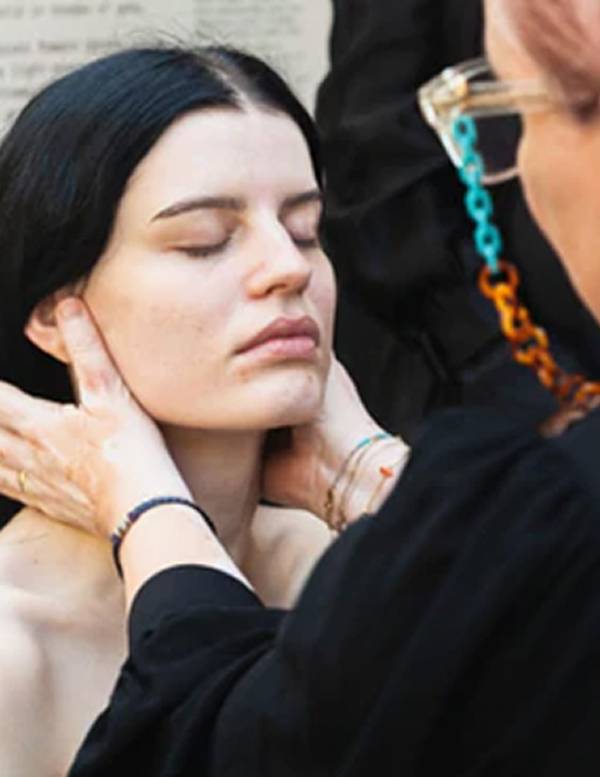
What changes would you like to see in the beauty industry when it comes to vitiligo?
“Firstly, vitiligo isn't going to kill you! It’s not dangerous or ugly. No skin is perfect and it’s unrealistic to want that. Social media and filters have totally destroyed what people think is beautiful. I want more education around vitiligo. Easy access for people to understand what it is and what you can do about it. Also, how to be able to cover it if you want to.
An example is, one day I was stopped by a man who kept staring at my arms. He said his son (who was five and of Indian background) had something similar and he was worried because it was ugly and he might get teased. This really upset me because the man had no idea about it and was embarrassed to talk to a doctor about it. I spent the time trying to educate him and help his son.”
CREDENTIALS
- Vanessa Megan / @vanessameganskincare
- Isabella Schmidt / @isabellaschimid
08 Mar 2022
